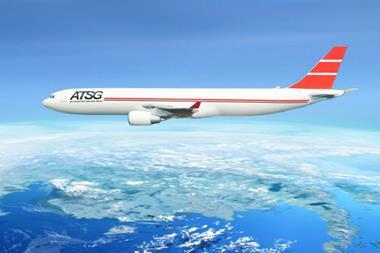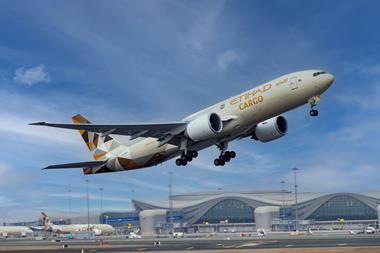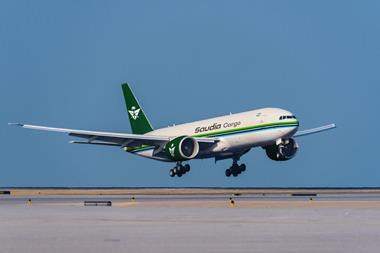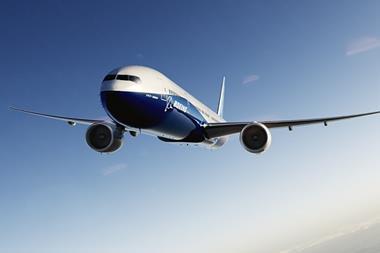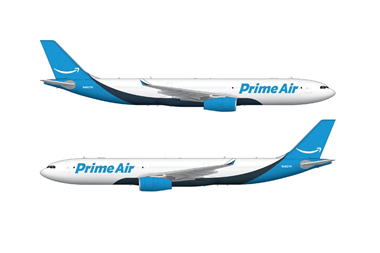Atlas Air Worldwide Holdings will target the express and e-commerce sectors as it looks to outgrow the traditional air cargo market.
During an investor day event, the aircraft lessor and operator’s president and chief executive William Flynn outlined to investors and analysts how the company planned to continue to grow over the coming years.
He pointed out that the traditional airfreight market, not including express and charter demand, grew by 2.4% last year, according to IATA, while Bank of America and Merrill Lynch estimate the express market increased by 4.9% and e-commerce was up by 20.4%.
Looking forward, IATA expects traditional airfreight to increase at a compound annual growth rate (CAGR) of 4% between 2015 and 2019.
Meanwhile, express has been growing with a CAGR of 6.3% and e-commerce is expected to grow by a CAGR of 22.3% between now and 2018.
The company has already made inroads into the express market - it has deals with DHL, UPS, FedEx, China Post and other express firms - and it recently announced a 20 freighter deal with e-commerce firm Amazon, and it will continue to target these areas over the coming years.
“We are entering an era of significant business growth and development, an era that we suspect will further enhance our revenues and our business diversification,” said Flynn.
“We have progressed in expanding diversification and the markets that we serve, from traditional heavy freight we are moving more deeply into the integrator express market and now into e-commerce.
“With these fundamental changes we are becoming a different company. In addition to beginning a long-term strategic relationship with Amazon, we concluded the acquisition of Southern Air on April 7 and together with other initiatives they provide a strong foundation for future earnings and cash flow.”
Flynn said that 47% of its large widebody fleet and 100% of its medium widebody fleet was already engaged in serving the express market.
As a result of this focus, Atlas' freight load factor of above 60% was already outperforming the traditional airfreight market, which according to IATA was last year below 50%.
Executive vice president and chief commercial officer Michael Steen said that growth in the e-commerce sector was disrupting traditional supply chains.
He said that customers were now ordering directly from producers and distribution centres and as a result delivery from producer to customer was now 10 days compared with around 30 days when orders are places with retailers under the traditional supply chain.
To capture this demand, retailers are turning to airfreight to speed up the supply chain process.
He said that figures showed that Walmart’s e-commerce revenues increased by 37% in 2015 while Target reported growth of 76%.
Meanwhile, Walmart’s stores saw revenues grow by 1% last year and Target reported a 2% jump.
Steen added that it was not just in the west that e-commerce was growing. Other major economies, with large populations, such as India and China, continued to see growth in e-commerce and Atlas customers were looking to expand into these countries.
In order to cater for this growth, Atlas was able to offer tailored solutions to meet the needs of customers, with a controlled air network with a wide range of freighters and a global scale to operate domestic and international networks.
He also anticipated growth with its traditional airfreight customers, pointing out that combination airlines are increasingly outsourcing their freighter operations.
Steen also indicated that there were opportunities to grow its 20 freighter partnership with Amazon.
“This is a long-term agreement that includes both crew, maintenance and insurance, and dry leases for an initial 20 Boeing 767 aircraft and we expect the first aircraft in the third quarter of this year.
“E-commerce is by far the fastest growing segment globally and it is our ambition to continue to grow with Amazon and they expand their domestic US and international operation.”





